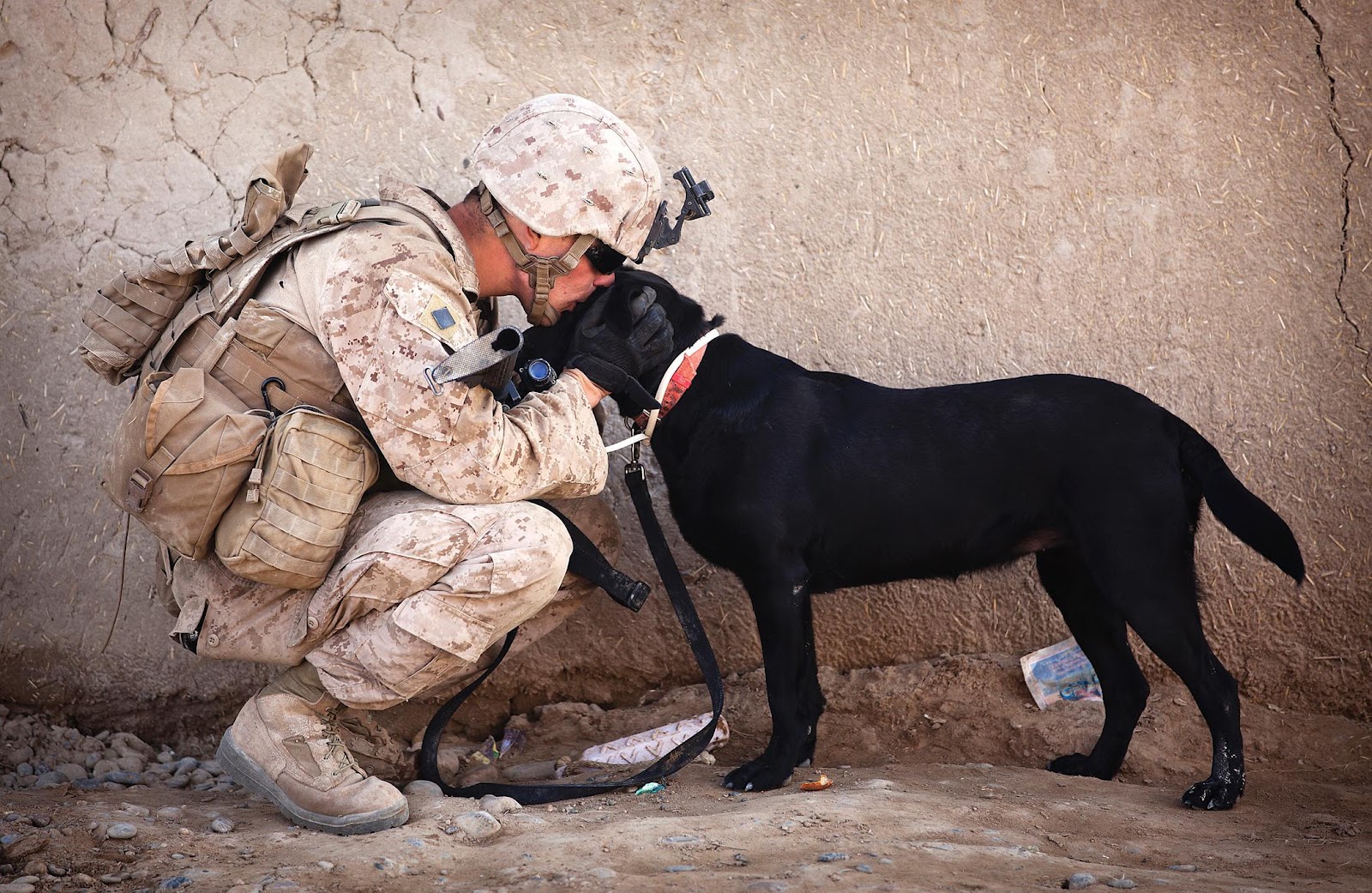
By: Alison Palmeri, Staff Writer
Amidst the daily stresses of life, people take solace in the comfort of a loved pet. For many people, however, having a dog involves more than the companionship of a furry friend; it is about having constant assistance in achieving some semblance of normalcy despite the challenges that life has thrown them. The role that service dogs play is becoming more prevalent as veterans return home from deployments.
David Knezek, a former marine and current Democratic senator for the Michigan State Senate, has taken this issue to heart because it “wasn’t until he came home that [he] . . . lost a buddy from his unit. The man committed suicide.”[i]
Many returning veterans suffer from Post-Traumatic Stress Disorder (PTSD), a mental condition that “may develop after a terrifying ordeal involving physical harm or the threat of physical harm.”[ii]
Recent data shows that 10-18% of veterans currently returning from Iraq and Afghanistan are likely to suffer from PTSD.[iii] Knezek, who is serving on the Veterans, Military and Homeland Security Committee, wants to make it easier for PTSD suffering veterans to obtain a service dog and to get the protections that come along with that certification. He intends to achieve this by standardizing the licensing and training for PTSD service dogs.[iv]
While researching for the potential legislation, Knezek has found that “‘There is a significant lack of definition for what it is these dogs can and cannot provide, a complete lack of standardization as it relates to the licensing process, the training, and how that dog visibly is showing to other people it is a working service dog.’”[v]
Service dogs and the services they provide for people with mental conditions are covered by the Americans with Disabilities Act (ADA). Due to this, many larger companies offer training to their employees, however, the training is usually brief and so spread out that employees forget the specific rules and regulations they have to adhere to. [vi]
Just by looking at a service dog, it is not necessarily clear what assistance they provide: Eric Calley, a former marine who suffers from PTSD, says his dog is “trained to monitor his blood pressure, changes in his muscle tension and breathing—signs of a pending anxiety attack.”[vii]
Most of the time, because these veterans do not appear to be disabled, they are often not given the same treatment in places, such as stores and restaurants, which are generally happy to accommodate those with more obvious injuries. Ideally Knezek’s goal of standardizing Michigan law will have a wider effect: bringing awareness to this underrepresented, yet growing, group of men and women and encouraging more standardization at the state and federal level.
Last year, Knezek, who was serving in the House, tried to get his bill passed, but it did not make it out of the committee.[viii] Currently, he would like to get the “legislation written, introduced and passed in 2015, but he doesn’t want to rush it.”[ix]
[i] Knott, Louise. “Law Would Protect Service Dogs for Struggling War Vets.” Detroit Free Press. 27 Jan. 2015. <http://www.freep.com/story/news/local/michigan/wayne/2015/01/26/lawmaker-ex-marine-turned-lawmaker-wants/22343995/>.
[ii] “PTSD: A Growing Epidemic.” NIH MedlinePlus. Winter 2009. <http://www.nlm.nih.gov/medlineplus/magazine/issues/winter09/articles/winter09pg10-14.html>.
[iii] “Mental Health Effects of Serving in Afghanistan and Iraq.” PTSD: National Center for PTSD – U.S. Department of Veterans Affairs. 3 Jan. 2014. <http://www.ptsd.va.gov/public/PTSD-overview/reintegration/overview-mental-health-effects.asp>.
[iv] Knott.
[v] Knott.
[vi] Knott.
[vii] Knott.
[viii] Knott.
[ix] Knott.
